WildLeaks: The whistleblowing site for planet Earth
"... You're not using intelligence? You're a boy scout."
“Really, fuck fuck fuck fuck, fuck” Andrea Crosta tells the driver of the car he just got in. Crosta is the founder of WildLeaks, a whistleblowing site for environmental crime, and he’s just aborted an undercover operation with a prominent ivory trader in China. Crosta wasn’t alone, and his collaborator’s hidden camera was spotted after she conspicuously moved her purse in front of some illegal merchandise. Crosta managed to talk his way out of the situation, but his colleague (only known as “Omega”) wasn’t so lucky. Crosta doesn’t know if she’s safe, or even alive. Five “fucks” seems a modest response, all things considered.
The busted operation will be familiar to anyone that’s seen Netflix’s documentary The Ivory Game, which features WildLeaks alongside other conservation groups fighting against China’s blackmarket for the prized material. But don’t call it the WikiLeaks of wildlife: The two sites may share some technological similarities, but ethically and practically they are very different. “They actually called us when we launched; they asked us if we wanted to discuss any kind of collaboration and we said no, because we are almost the opposite of WikiLeaks.” Crosta told me. “So WikiLeaks is all about splashing whatever you have on the media, as it is, a lot of noise. In my personal opinion, sometimes they hurt people.”
Instead, WildLeaks tries to use the information it gathers more selectively. Crosta has just released a 70-page report outlining all the work WildLeaks has done to combat the range of environmental crime that enables the ivory trade, illegal deforestation and many other organized criminal activities that erode our planet’s resources. If all that feels very far away from you and your life, consider this: If more people took environmental crime seriously, or knew about WildLeaks, we might not be dealing with the largest global pandemic in a century, at least, not at the same scale.
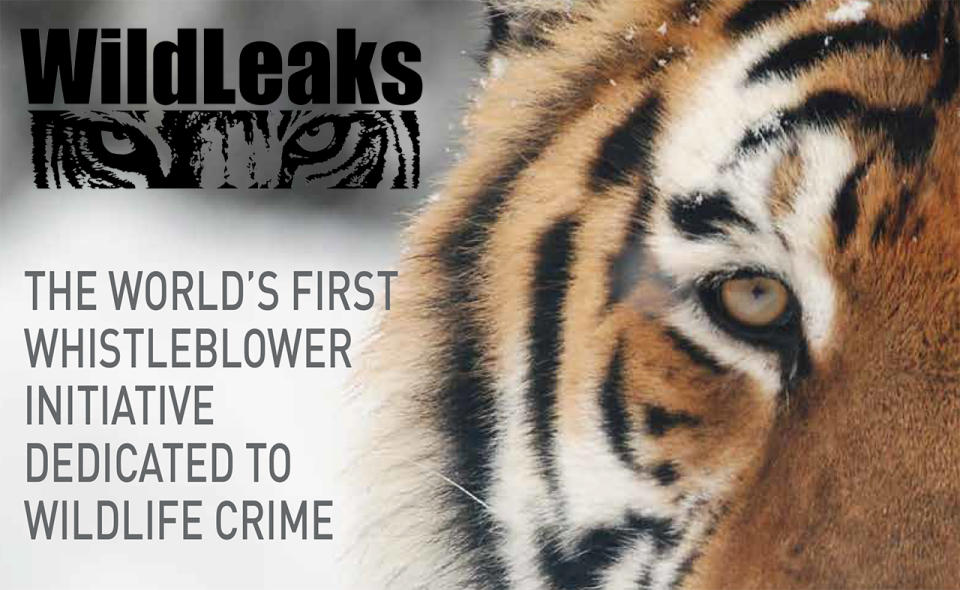
Crosta created WildLeaks in 2014, a year after forming Earth League International (ELI), formerly the Elephant Action League, which he describes as “the first intelligence agency for Earth.” WildLeaks is a separate, secure platform that allows tipsters to anonymously report any environmental crime without fear of exposure. ELI and WildLeaks do overlap, but the latter is something of a novel concept in environmentalism. Your classic NGO or environmental charity might have a website, maybe even a tips line, but Crosta sees technology as a key tool to up the ante in the fight against environmental crime, and it’s all about intelligence, a word he uses a lot.
“I started asking, who is doing intelligence? I discovered [it was] nobody and I was starting to think ‘Jesus Christ this is the fourth-largest criminal endeavour on the planet [worth] up to $209 billion per year. Including illegal logging, illegal fishing, and you're not using intelligence? You're a boy scout.’”
To bring intelligence to the fight against wildlife crime, Crosta regularly employs former CIA and FBI agents, and has a military background himself. “I come from Italy, I served in the military police, I was dealing with mafia as well.” His early dealings with organized crime would set him up with the perfect skill set to take on these crimes in a modern way. Let’s be clear, these are organized crimes and often overlap with drug cartels and human traffickers. But his path here wasn’t based on his military training. At least not on its own.
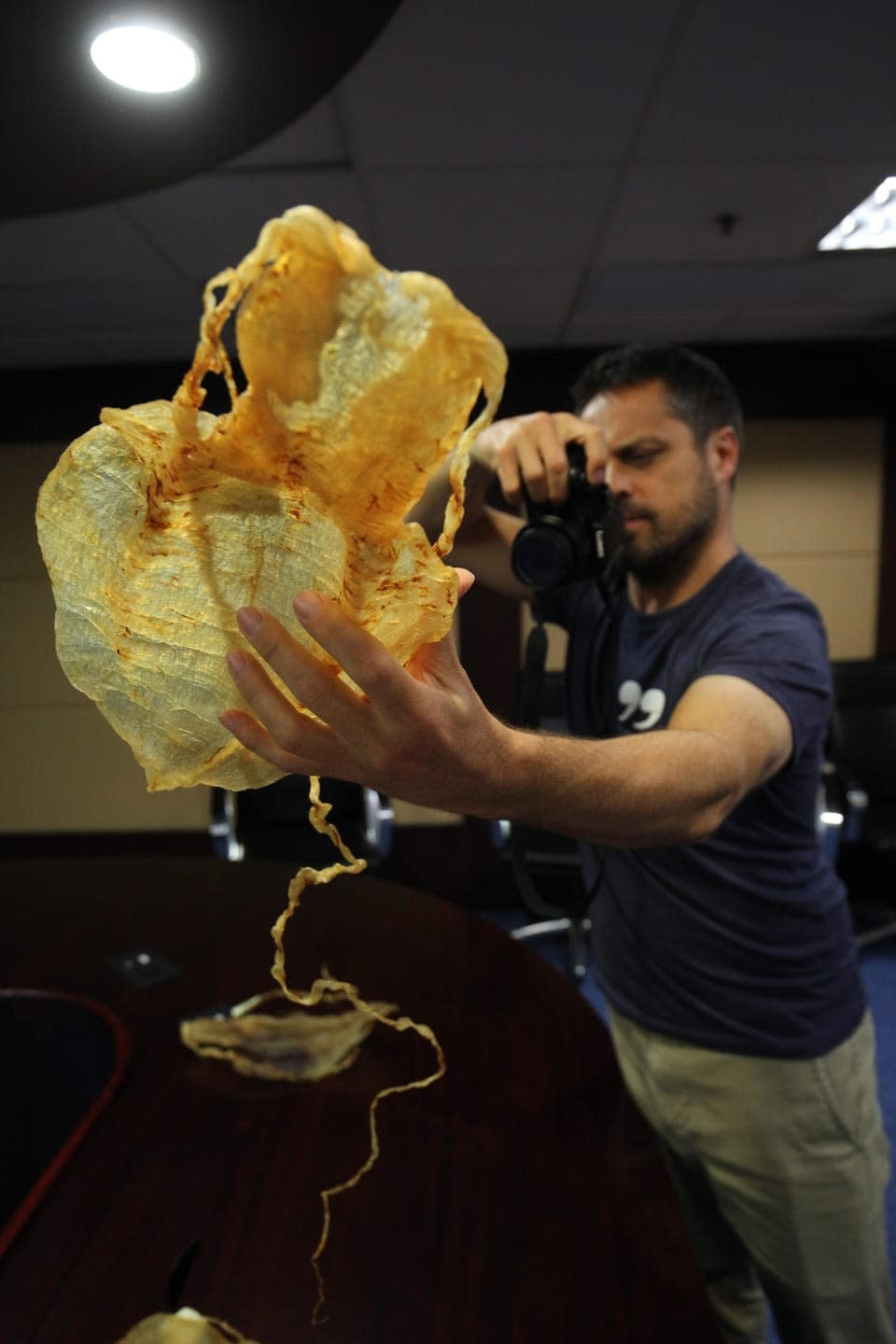
Crosta currently lives in Los Angeles, although he’s not listed at his apartment for security reasons. Originally he’s from Milan, Italy; his interest in conservation started when he was young. He has a masters in natural sciences, and started working in conservation before the sudden death of his mother meant he had to change careers. He completed more studies and started one of Italy’s first e-commerce sites which was going well until the dotcom bubble burst. “I almost became a millionaire and then I lost everything when the NASDAQ crashed.”
After his dot-com dream ended, he began working in intelligence and offering his services as a guard escort in Somalia during the height of the piracy issues there. Some of that work involved consultancy, investigation and intelligence and the associated technologies. While in Somalia he saw the impact of environmental crime at the grass roots. “It seemed we were losing 35-40 thousand elephants per year. I said, ‘Okay. It's time to go back to my original passion, but what can I do?’”
Crosta’s mix of ecommerce, conservation and work with anti-criminal agencies combined to provide a logical answer to that question: WildLeaks. The site launched to modest fanfare, but almost immediately started receiving tips. WildLeaks uses the TOR network and other anonymizing technology to allow informants to safely submit information about environmental crime. But after a few years of fighting environmental crime in the shadows, there was another surprise life event that would halt its progress.
“I got a lymphoma tumor in my stomach, so I had to stop a few activities and not to keep everything open. One of the things that I stopped was WildLeaks and the reports. Now that I feel okay, that I'm cured, we're relaunching the whole project and the reports.” So, six years, two documentaries, several undercover operations and some big “wins” later, Crosta is more eager than ever to realize his idea’s true potential.
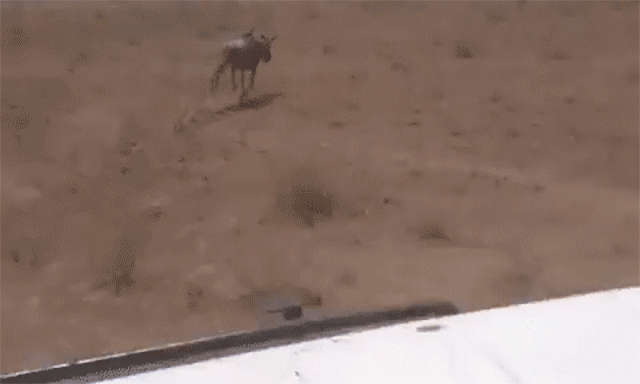
A shaky video is posted to WildLeaks’ blog. At first, it just looks like any other (badly shot) home video of a safari trip, until you see the barrel of the gun. The person holding it is standing in the bed of a truck, moving at speed, as wildebeest flee in different directions. It’s unclear how long they’ve been pursuing them, but eventually the truck comes to a stop. A man gets out and circles an exhausted, terrified animal, all while performing the moves of a cartoon boxer. He grabs the animal by the horns and the video ends, but the torture does not.
“The shocking videos by [safari organizers] Green Mile showed hunting with automatic weapons, having children hunt with automatic weapons, gunning down fleeing animals from moving cars, capturing baby animals and torturing dying ones, and using bait and lights at night to attract unsuspecting animals – all illegal acts” reads the summary of events in WildLeaks’ report, released today.
Green Mile was part-owned by Sheikh Abdulla Bin Mohammed Bin Butti al-Hamed, a member of Abu Dhabi’s ruling family and a government official. After receiving the videos via WildLeaks, Crosta launched a campaign along with the Humane Society International and the International Fund for Animal Welfare and the US Ambassador to Tanzania to revoke Green Mile’s safari hunting permit. In 2019, they achieved just that. It’s one of a number of depressing stories told within the report’s pages.
WildLeaks’ report stands out. If you’ve ever taken the time to read similar publications from more conventional non-profits, you’ll know they can be a heavy read. Lots of formal language broken-up with the occasional infographic. Crosta’s goes in a different direction and doesn’t just feel like a document designed to pat-down people’s pockets (though no doubt that’s part of the goal). What it mostly achieves is reminding us that environmental crime affects us all, and will only continue to do so in increasingly direct ways.
“ELI believes it is important to revise the current, outdated narrative around environmental and wildlife crime, currently focused on poachers and end consumers” one sections reads. It’s the same section that talks about WildLeaks’ forthcoming graphic novel. This fusion of the dire truth with surprising ideas seems to be WildLeaks’ MO. Crosta’s clearly not just targeting the suits, he’s going after young, connected adults to achieve his stated goal of transforming “information into concrete actions.”
TIP
“I am writing to you from [redacted]. We received a report about the regular smuggling of African Grey parrots (Psittacus erithacus) from Nigeria to Lebanon, with the complicity of members of the Lebanese community living in Nigeria, such as travel agents, freight forwarders, employees of MEA (Middle Eastern Airlines) used to ship the birds. We did not receive any additional details.
This species has suffered a massive population decline in Nigeria, currently only extremely low and scattered populations are reported although there appears to be an ongoing illegal trade from Cameroon. There is no CITES export quota for P. erithacus from Nigeria. Thanking you in advance.”
As Crosta tells it, most NGOs or activist groups are going after the wrong people. “Because it's so much easier to bust, you just see the low hanging fruit, so the local NGO is happy, they get more money, and the law enforcement is happy.” This has been the situation since basically forever, and Crosta wants to change it. In this regard, Crosta isn’t unique. “One of our key messages in relation to environmental crime is that environmental crime is as serious as any other crime you would think of, like drugs smuggling or human trafficking.” Maria Socorro Manguiat, UNEP’s Senior Legal Officer and Head of National Environmental Law Unit, told Engadget.
UNEP is the UN’s environmental program, and it’s on the exact other end of the spectrum to WildLeaks: well-funded, austere, political and procedural. But the two organizations do share some ideologies, despite their different approaches. “[There’s] this notion that there are two categories of crimes, the real crimes and the not-so-serious crimes. And we find often that environmental crimes tend to be put in the second category” Manguiat added.
And she’s right. Unlike the war on drugs, the war on poaching, animal trafficking and environmental crime has historically focused on the foot soldier, the equivalent of going after the street dealer. That tends to be what we see on the news, and terms like “poacher” have become ingrained in our mind as the real, if not only, villain. Rarely do we think of the network behind the poacher, the illegal logger or the terrorist groups directly profiting from unsanctioned charcoal trade.
Where the differences between organizations like the UN and NGOs like Crosta’s become apparent is in how they can operate. The UN is deeply sensitive to international political challenges where environmental crime is carried out. It plays a much more advisory role, offering legal solutions, facilitating meetings between nations or helping train customs officers on what suspicious items or traits to look out for. As with all large organizations, things are slowed down by processes, summits, seminars or whenever it’s possible to get the right people in the room together. UNEP does have online efforts and uses resources like Google Witness, but diplomacy and education are its main tools.
WildLeaks operates directly with local informants and its band of agents, moving with all the hustle of a small team mostly operating online. Crosta would likely scoff at the idea of training customs officials, as in his world, they’re often the very person committing the environmental crime. “There was this leak, I think a couple of years ago, we received an anonymous message saying, ‘There is a small plane that leaves Lusaka Airport every Monday morning and is very shady. They bypass customs, they get a lot of crates on it’" Ironically, being nimble sometimes throws up situations you’re under-resourced to investigate. “If you are a big organization, you send someone to Lusaka International Airport and be there on Monday morning. That's why we have to share with the media, with law enforcement, with NGOs.” Crosta told me.
“They were talking about wildlife trafficking and then they shifted to human smuggling and then to money laundering.”
As if to illustrate that point, Crosta told me about one of WildLeaks’ bigger profile undercover operations. It reads like the setting for a showdown on an episode of Narcos. “In our investigation a couple of months ago, we were in a Latin American country. We met very important Asian traffickers ... At the same table, there was a guy involved with narcotrafficking, another one working for customs. And us, our undercover team filming everything and recording everything” he said. “They were talking about wildlife trafficking and then they shifted to human smuggling and then to money laundering.”
I asked Manguiat what UNEP thinks about organizations like WildLeaks. I was expecting a diplomatic answer about how they empathize with their cause but wish they would operate in more conventional channels with more traditional methods. But that’s apparently not the case. “The work of these independent groups is appreciated because I think there is a recognition that part of the challenge in many countries is the low capacity to do this kind of monitoring, this investigative work because the resources are stretched.” It seems, then, that there’s a potential for symbiosis between smaller, more agile groups like Crosta’s and monoliths like the UN.
Crosta’s story about the round-table meeting of several organized crime bosses is a good example of the boots-on-the ground investigations the UN can’t do. During one of our conversations, he held up a sheet of card. On it were several photos of people with their names below, like an arts-and-craft version of a crime movie suspect board. “This is a crime map of illegal fishing in Mexico. And of course, if you see any name, please don't mention the names.” Fortunately, I couldn’t read any names.
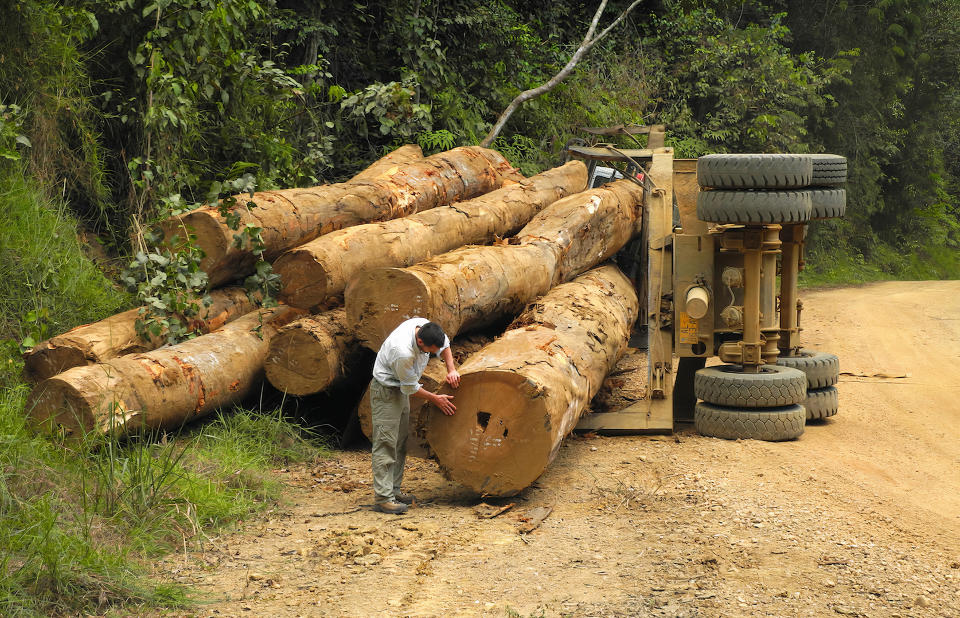
TIP
“I have no idea if this is of any value given that I have no proof but only the impression of something being odd. Anyway here it is in the hope that a flag is raised. There is a South African aircraft engineer, named [redacted], he previously worked in Douala, Cameroon, at Lusaka Airport. I happened to hear a conversation about small aircraft arriving and leaving from/to Lusaka and South Africa in the early hours of the morning. Seems unusual to me.”
So what actually happens when you submit a tip to WildLeaks? First, it goes through a verification process. “We have a very, very big network of people around the globe in this field. So it's highly unlikely that we are not able to assess something we received in terms of: Is it a problem? Is it not? Is it true? Is it false? Is it important?” Crosta said. Sometimes it’s as simple as whether there is even enough information to proceed. Crosta gave an example about a tip they received about someone keeping a Quetzal -- a threatened species of bird found in central America -- at home in a cage. “There was also a picture of the cage, but it was in the middle of Belize. So what do you do? I mean, you cannot do much.” WildLeaks’ report outlines many similar cases where a lack of intelligence is the barrier.
The next consideration is could the whistleblower be identified? While the WildLeaks platform can protect the identity of the sender, the evidence or information they submit could still incriminate them. Crosta gave an example of someone who submitted a shipping bill of lading (receipt of cargo for shipment) that was clearly used to hide at least six “ghost” containers. But his team determined that this information would only be accessible to a small number of people, making the likelihood of exposing the tipster too high to proceed with just this evidence alone.
From there on, things get more technical. The cardboard crime map Crosta showed me earlier seems to be one of WildLeaks’ few analog outliers. Along with the same map, Crosta will share the digital video and audio footage with the relevant authorities or with his network of trusted colleagues if they choose to investigate further themselves. He’ll also likely have digital versions of everything. He tells me WildLeaks uses IBM’s Analyst Notebook, which is often used by law enforcement agencies for making connections between data, crime maps and so on.
Another tool WildLeaks uses is Maltego, which the developers describe as an “open source intelligence and graphical link analysis tool for gathering and connecting information for investigative tasks.” Crosta says they use it for making connections between people and any other useful data they have. “These softwares allow you to connect, maybe, information coming from the field or the person, who emailed to another person, to a company, to other people, and these are all hidden connections.” He told me. “We do a lot of good work on social media, and on the deep web as well.”
But what about WildLeaks itself? While it apparently uses a TOR-based platform, and the website guides users to the TOR browser before they submit a tip, it’s still possible that some public nodes on the network are placed there deliberately for snooping purposes (though there’s no way to guarantee what traffic is sent over it). WildLeaks’ platform was developed in conjunction with GlobaLeaks, an open-source project that actively works with organizations such as Crosta’s that promote direct action by citizens and corporate employees.
"We have to be very creative with the recording devices for different reasons."
If the WildLeaks team does decide to investigate a tip themselves, as with the ivory dealers and “Omega,” this is where the spy gadgets come in. In The Ivory Game you can see Omega and Crosta donning fairly typical spy cameras, one in a purse, the other in a shirt button, that kind of thing. But Crosta tells me there’s a lot more going on.
“In the field, yes, you basically use GPS trackers sometimes and all kinds of recording devices. We have to be very creative with the recording devices for different reasons. One is because the bad guys, so to speak, are becoming more aware.” For understandable reasons, he’s reluctant to share more specific details with me, beyond that they have contacts in Asia who produce bespoke spy gadgets for them. He claims they can put a camera in just about anything. “I think we are using just maybe 20-percent off the shelf. All the rest is custom made for us.”
This battle of information is why working with documentaries like The Ivory Game and National Geographic’s Sea of Shadows (which also features Crosta heavily) is a double-edged sword. On one hand it’s priceless publicity for WildLeaks and Earth League International, but on the other it reveals Crosta’s identity to more people, and could highlight some of his methods, and that spy technology. “We allowed the filmmakers to film only the gadgets from the shelf. That's the kind of normal equipment that everyone has, but they were not allowed to film the rest.
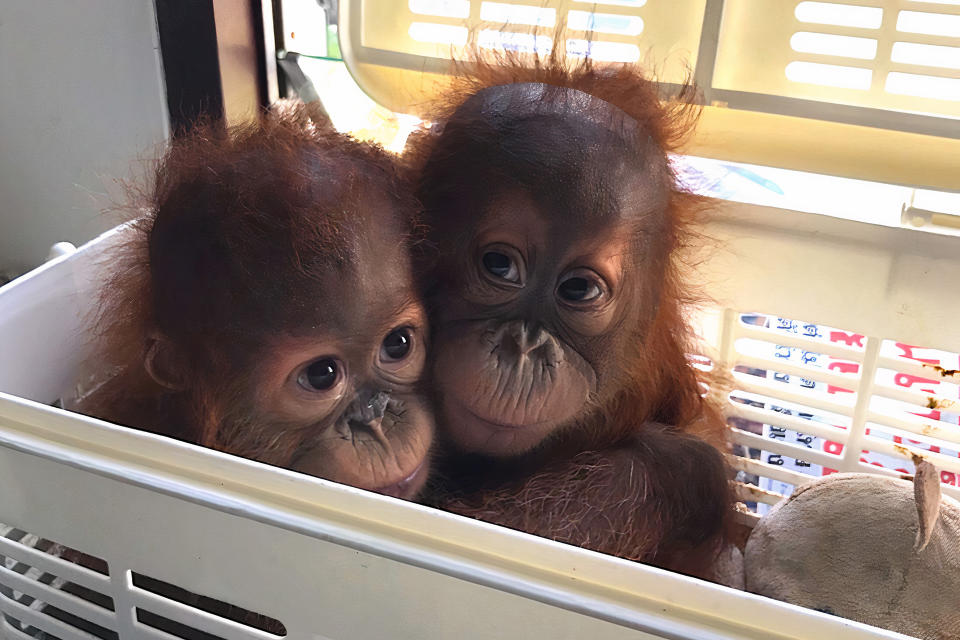
TIP
“For about 5 years Mr. [redacted], a professional hunter operating on (redacted) in the Maputo province of Mozambique has been hunting a variety of animals, buffalos, elephants, lions and leopards. I [redacted].
Mr. [redacted] has been sighted and filmed before with can lion hunting some years ago. [redacted]. The scouts told us that they had to pull decomposing meat along the fence and push the fence down and put the meat into the Kruger, and pull it back into Mozambique, and then pull the meat up to a bait station, either a carcass tied up in a tree for leopard of meat dangling on a rope for lion. The hunter who had paid thousands of dollars would be sitting in a hide overlooking the bait.
I have facts, documents, permits etc. about [redacted] when he is allocated 10 buffalo to hunt in a year, shots up to 40, more leopards and lions allocated etc. etc., firearms being smuggled into Mozambique and the list goes on.”
WildLeaks’ unofficial relaunch couldn’t be better timed. In 2020, the world as we know it changed forever. A global pandemic of scale and speed never seen in modern times has undoubtedly touched almost every human on the planet. The exact origin of COVID-19 is still unknown, but one thing many experts agree on is that it likely crossed over to humans from bats. Exactly how, we can’t be sure, but early on, many reports focused on so-called “wet markets” -- poorly regulated hotspots for animal trading. Pangolins in particular were considered an early culprit, too. Since then, it seems less clear of the actual mechanism and location where the transfer to humans happened, but all of the above are vectors that environmental crime can enable.
Whether it was a market or illegal animal trade doesn’t matter so much. The point is that the pandemic has highlighted that these opportunities for transmission exist, and could easily be the source of the next one. UNEP’s Manguiat also points out that, either way, environmental crime is almost certain to be a catalyst. “Encroachment of areas, wildlife areas, encroachment of forests, which involves, to some extent, environmental crime has increased the pressures and most likely accelerated the jumping of the virus from animals to humans” she said.
While it’s unlikely that diverting more resources to fighting environmental crime alone will prevent further pandemics, lowering our risk of a repeat crisis of this scale is likely to be something we can all get behind. WildLeaks, UNEP and the many, many other operators in this space know that without resources and public attention, nothing can change. WildLeaks just happens to be doing things a bit differently.
But doing things differently brings its own challenges. Many of the potential sources WildLeaks wants to attract may not have reliable internet access, or the technical savvy to navigate things like the TOR platform. Even if they do, WildLeaks needs the financial and human resources to investigate and gather intelligence. And then there’s the matter of time.
"... Any whistle-blowing project in the world needs two things: to be known and to be trusted. If you don't have those two, you have nothing."
At the end of The Ivory Game, it’s revealed that China eventually banned the legal trade of ivory that was serving as a gateway for the illegal market (people cooked their books to make out they were selling within allowed limits). This one single act should have helped protect the remaining elephants in east Africa and it has. Yet, an illegal market continues, just further in the shadows, and it’s still thought that the world’s largest land mammal could be “mostly extinct” by the end of the next decade. Not in your children’s lifetime, in your lifetime.
But as Crosta points out, that’s where you come in. “Specifically for WildLeaks, any whistle-blowing project in the world needs two things: to be known and to be trusted. If you don't have those two, you have nothing. Nobody will ever send you anything. The public can do a lot.”
If there is one thing I have learned about Crosta, it’s that he’s creative in getting the word out. Two documentaries (and more incoming, he tells me), several reports and even that graphic novel indicate he’s not afraid to try something new. Now that he can no longer go undercover himself, the public’s help is more important than ever, be it valuable tips, or just sharing on social media.
Of course, he still has his collaborators to do the undercover work. Which brings us back to Omega. If you’re still wondering what happened to her, she was unharmed. The documentary hints at what happened next, but it’s Crosta’s response that seems somewhat ironic given how much of himself he’s invested in the project: “Why did you do it, why did you risk your life?”

